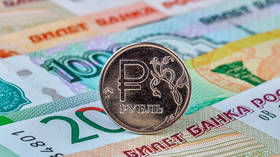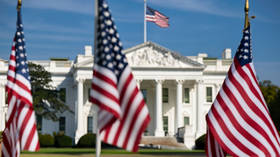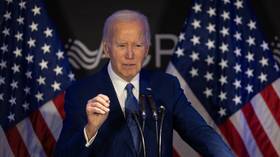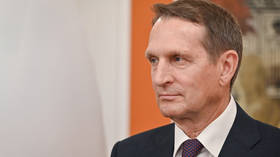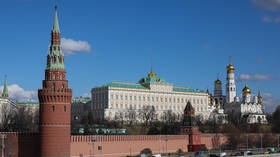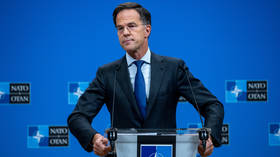EU army: Will it be easy for Europe to get rid of American political diktat?
The creation of a European army would be a boon for Russia-EU relations, various military experts have told RT. It would mean getting rid of the US political diktat – and that's why Washington will not allow it.
Were the European Union to create an army of its own, as French President Emmanuel Macron and German Chancellor Angela Merkel have recently suggested, the friction with NATO would be enormous, several military and political analysts predict. At the same time, an EU army would be a tremendous tool for normalizing relations with Russia.
NATO would be obsolete
For the European Union, having its own army is a sort of "national liberation" idea, says Leonid Ivashov, a retired general of the Main Intelligence Directorate (GRU) and President of the Academy for Geopolitical Problems.
While NATO is there, European security is always governed from Washington, Ivashov says. It's always an American general or admiral in charge of the force in Europe. Washington dictates what the EU should be afraid of – and it says the main threat is Russia. That threat is, in fact, an imagined one.
Nobody is threatening Europe. Russia doesn't want to conquer Europe in the least. Russia wants to trade, to cooperate, mostly in economy. And Europeans understand that.
The problem with NATO is that Europe has come to trust it too much. After the Soviet Union fell apart, the trans-Atlantic alliance has been looking for a pretext to remain intact. It took upon itself to protect Europe from terrorism, weapons of mass destruction, illegal drugs and migration.
"The Europeans put their trust [in NATO], weakened their own security. And today they suddenly see they're not protected from terrorists, drugs, or especially migrants," Ivashov says.
NATO has never been about protecting anyone, Ivashov says. It's always been about holding Europe hostage and bringing profit to trans-national corporations run from the USA.
There would be normalcy with Russia (though no love)
Being free from NATO would allow Europe to pursue its own interests – and that would naturally lead to better relations with Russia.
"Europe will simply become independent. It won't start loving Russia, it will just start working towards its own interests in the gas sector and other fields of the economy," Ivashov says.
That, of course, will lead to a political improvement: We will simply have normal, business-like relationships.
Should there be a break from NATO, the EU will come looking for new allies, believes Konstantin Sivkov, military science PhD and one of the founders of the Academy for Geopolitical Problems, – not least in order to stand up to its former trans-Atlantic partners.
"No enemy is worse than a spurned ally. That would make the US an enemy of Europe," he says.
A new system would enable real agreements with Russia, whereas now they mostly remain on paper – and will go down the drain should there be an order from across the ocean to attack Russia.
"The people in charge are all far away, across the big pond," says Aleksandr Zhilin, a politologist, military expert and President of the Center for Research of Applied Social Problems.
We can negotiate with Germany, France, Italy and the like all we want, and seem to have a good relationship. And then suddenly there's an order from the Joint Chiefs of Staff: Get in your tanks and march on Russia! Why did we even talk to them in the first place?
An independent European army could, in time, allow Europe to enjoy military cooperation with Russia. There's a dramatic gap in some of the EU nations' capabilities – mostly aviation and air defense – that Russian hardware could fill.
"Who would mind S-400s protecting the borders of [European] nations?" Zhilin asks. "Only one country: The United States of America."
Forces within Europe don't want an EU army
As much as Macron and Merkel would like Europe to have a capable fighting force of its own, there are others in Europe who would not stand for it. The UK and Poland, namely, are too deep in Washington's pocket, says Ivan Konovalov, the director of the Center of Strategic Conjuncture. The UK will soon no longer be part of the EU, but Poland remains and will continue to oppose the creation of Europe's own army.
"Poland has always been a conduit of American policies, and now it's receiving a big blank check… and it will never support a parallel military structure like a united European armed force. Neither will Norway, or the Baltic countries."
Dutch Prime Minister Mark Rutte has also rejected the idea of an EU army.
"The idea of a European Army goes way too far for the Netherlands," he told journalists on Friday. "NATO is and remains the cornerstone of our defense policy."
Austria's defense minister has also said his country wants no part of a European army, since it would be "contrary to the Austrian constitutional position" of neutrality.
Chances an EU army will be created are slim
While Ivashov assessed the real probability that a European army will appear at 50 percent, other experts were much more skeptical, many noting that the US will never allow it.
NATO is a convoy for the European Union. A step out of line, and it's "down on your knees!"
Apart from the pressure that can be applied through the likes of the UK and Poland, the US is providing a huge chunk of crucial military hardware European nations use, experts agree. And should that fail as a lever, NATO can always resort to obstructionism and outright sabotage, Konovalov says.
The most Merkel and Macron can hope for, he believes, is creating a nominal bureaucratic structure like the Western European Union, which was created after WWII and later completely eclipsed by NATO. Any such alliance would lack real military capability and serve only as a political tool in talks with the US.
But worst of all would be the technical difficulties, Sivkov says. The EU has come to rely on NATO so much it has gaps in key military capabilities. Its members' fleets are either too small or too limited in reach. Its air forces are mostly represented by the Eurofighter, which is a joint creation of the UK, Germany and France and thus susceptible to London's whims, and the French Rafale –a light fighter and no match for the heavy ones the US and Russia can scramble. And its anti-air and anti-missile defenses are virtually non-existent, fully reliant on American Patriots and THAADs.
Importing Russian hardware is not an option either. When it comes to military technology, Russia and the EU are "on different planets," Sivkov says. And if the EU were to break from NATO, it might as well just build its own weaponry from the ground up – a task that would obviously require enormous expense.
Subscribe to RT newsletter to get stories the mainstream media won’t tell you.



